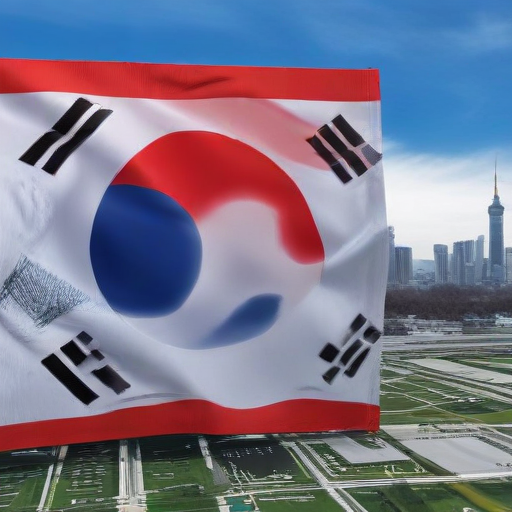South Korea is increasingly benefiting from artificial intelligence, with a notable rise in productivity being noted in recent analyses by Bank of America. The country has emerged as a key player in the global AI landscape, witnessing a significant 50% year-over-year surge in exports, particularly in the semiconductor sector, which constitutes 17% of South Korea’s total exports. The report highlights South Korea’s substantial investments in AI research and development, alongside a growing portfolio of AI-related patents, positioning the nation well for future advances in artificial intelligence adoption.
However, South Korea’s growth is tempered by global geopolitical tensions, especially between the United States and China. Analysts warn that increasing friction could impact the semiconductor supply chain crucial to South Korea’s AI ambitions. Despite efforts to diversify chip exports, a significant portion of South Korea’s semiconductor shipments still goes to China and Hong Kong, accounting for over 30% of total chip exports. Export restrictions imposed by the U.S. targeting advanced chip technology destined for China could pose a serious threat to South Korea’s semiconductor industry, particularly affecting major firms like Samsung and SK Hynix that have significant operations in China.
The Biden administration’s exploration of trade regulations, such as the foreign direct product rule, which prevents the export of goods made with U.S. intellectual property, adds further complexity to South Korea’s semiconductor strategy. As South Korean manufacturers rely on China for various components and tools necessary for chip production, any disruptions in the supply chain could hinder their operational capacities.
Despite these challenges, there remains hope as South Korean companies continue to innovate and invest in technology. By bolstering local production and forming strategic partnerships in other regions, the nation could mitigate risks associated with global tensions and sustain growth in the AI sector. In the long run, a focus on diversification and resilience could enable South Korea to solidify its standing as a leader in artificial intelligence.
In summary, while South Korea recognizes a bright horizon in AI-driven productivity and innovation, careful navigation of international relations and supply chain vulnerabilities will be essential to maximize this potential.
